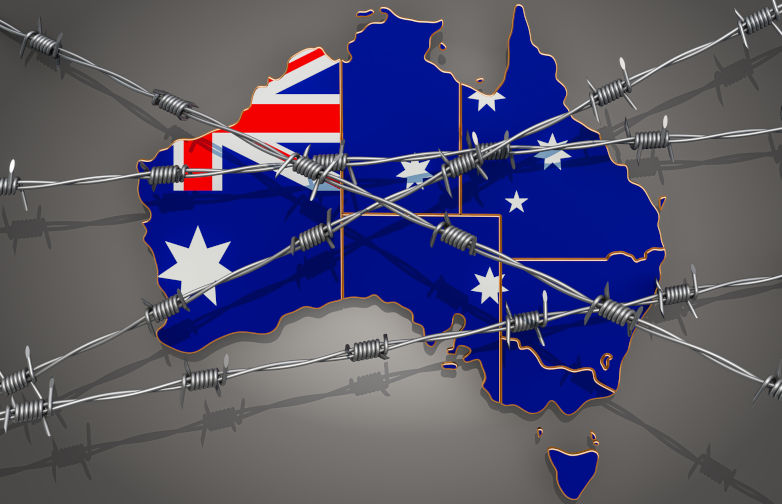Australia excoriated over refusal to allow UN torture committee to visit places of detention
December 5, 2022
Australia is a party to the United Nations Convention Against Torture. Pursuant to the terms of the Convention, the UN has established a Sub-Committee for the Prevention of Torture (SPT). The Committees mandate is to prevent torture, cruel, inhuman or degrading treatment. It pursues that mandate through visits to member states. Member states are obliged to allow the SPT unannounced and unhindered visits to places throughout a country where people are deprived of their liberty. Australia has just refused to permit the Sub-Committee to undertake its mandate here.
What has happened is that the governments of Queensland and New South Wales have denied the SPT access to their places of detention. Each has also refused to provide the SPT with the documentation it has requested.
Despite the SPTs continued efforts to negotiate with the two State governments, their obstruction of the Committees work has been complete. The Committees response has been sharp. It suspended its visit to Australia and issued a statement deploring the State governments actions. The Committee stated that:
This is a clear breach of (the international convention). It is deeply regrettable that the limited understanding of the SPTs mandate and the lack of co-operation stemming from internal disagreements, especially with respect to the States of Queensland and New South Wales has ended in impasse. It is concerning that four years after it ratified the Optional Protocol to the Convention Against Torture (OPCAT), it appears that Australia has done little to ensure consistent implementation of OPCAT obligation across the country.
This is a significant international embarrassment. The measure of the embarrassment may be assessed when one considers that in the five years of the SPTs work, only three other national visits have been suspended or terminated: These have been in Azerbaijan (2014), Ukraine (2016) and Rwanda (2018). This is not normally company with which Australia considers itself identified.
If Australia were to continue to flout its international human rights obligations so flagrantly, it could be placed on the UNs Article 17 non-compliance list. This list contains a collection of countries whose human rights compliance is viewed with serious concern internationally.
The President of the Australian Human Rights Commission has remarked that this is a very regrettable situation for Australia, both in terms of international standing and the responsibility of Australian authorities to protect people they place in involuntarily held environments.
It is not as if Australia can cite the implementation of detention with any pride. Take, for example, immigration detention. Inquiry after inquiry has found that immigration detention, in particular on Manus Island and Nauru, has been cruel, inhuman and degrading.
Among other reprehensible practices, the UN Rapporteur on Torture has singled out the following as of particular international concern.
- Insufficient access to medical, legal, social and other services
- Exceptionally poor conditions of detention, causing excessive pain, suffering and mental illness.
- Inadequate supplies of foods and liquids.
- Inadequate access to means of communication with relatives and friends.
- The use of force, isolation and restraints against detainees without just cause.
- Manifestly excessive timeframes for people held in detention.
- The lack of mechanisms for reviewing the detention of individuals.
- Indefinite detention even where no crime or disruptive behaviour has been in evidence.
In a recent report the UN Special Rapporteur has found Australia, in relation to immigration detention, to have engaged (if not directly in torture) then certainly in cruel, inhuman and degrading treatment. No doubt similar conclusions may be drawn with respect to the detention of children.
Queensland and New South Wales defence of their actions have been extraordinarily weak. New South Wales Corrections Minister was asked whether the States refusal to co-operate reflected its view that the States detention facilities would not meet the relevant international standards. He replied that matters of funding and security would first need to be discussed with the Commonwealth Government prior to access being granted.
While NSWs response had a scintilla of justification, Queenslands had none. Senior Minister, David Elliott, said that Im not going to have UN inspectors from Iran, China and Cuba come into Queensland and tell us what were doing wrong. None of these countries were included in the SPT delegation.
The Federal Governments response was more measured. The Attorney-General, Mark Dreyfus issued a statement. In it, the Attorney said that he regretted the SPTs decision to suspend its visit. It is disappointing, he said, that Queensland and NSW had refused to allow the SPT to visit any state-run places of detention. Access to Commonwealth places of detention were facilitated in all cases.
The suspension of the visit, he continued, does not change the Australian Governments commitment to promoting and protecting human rights nationally and internationally. It is vital that places of detention maintain the rights of those within their walls.
The UN Committee against Torture issues its formal report on Australia this week. I will report on its conclusions in Part 2 of this contribution.

